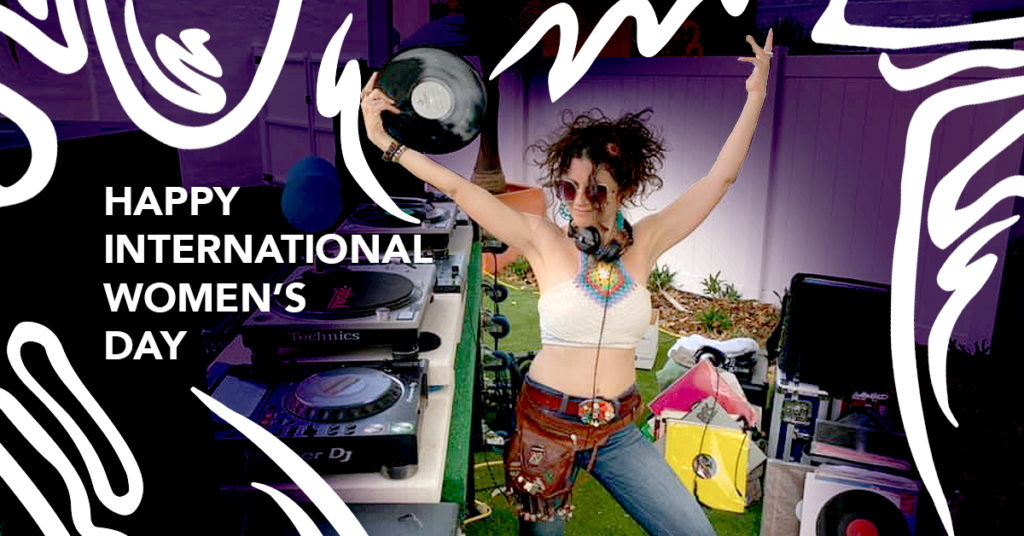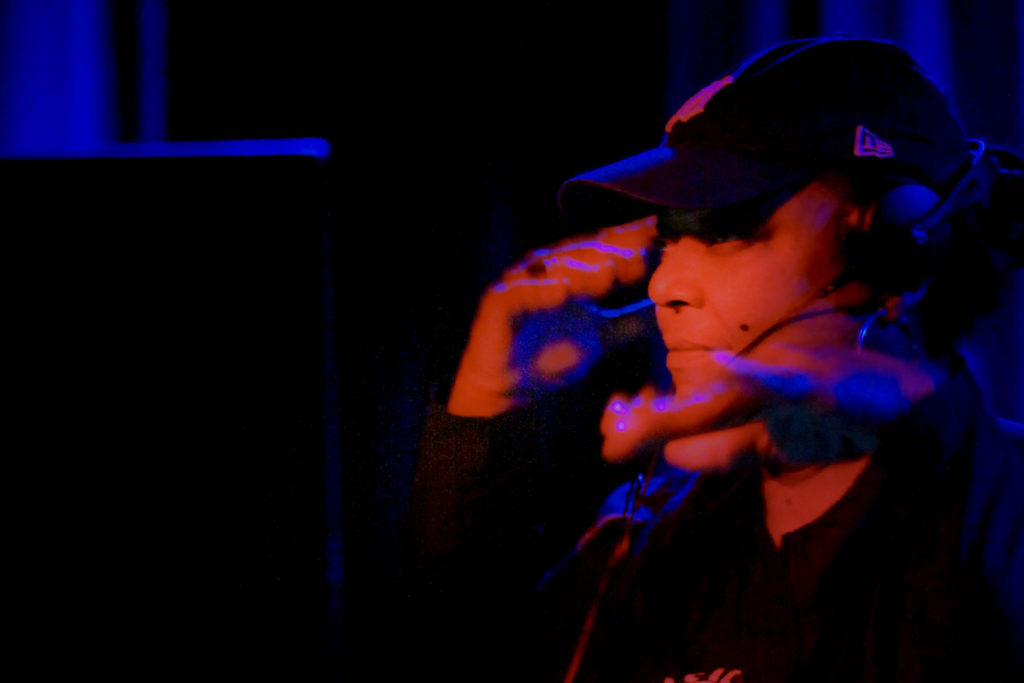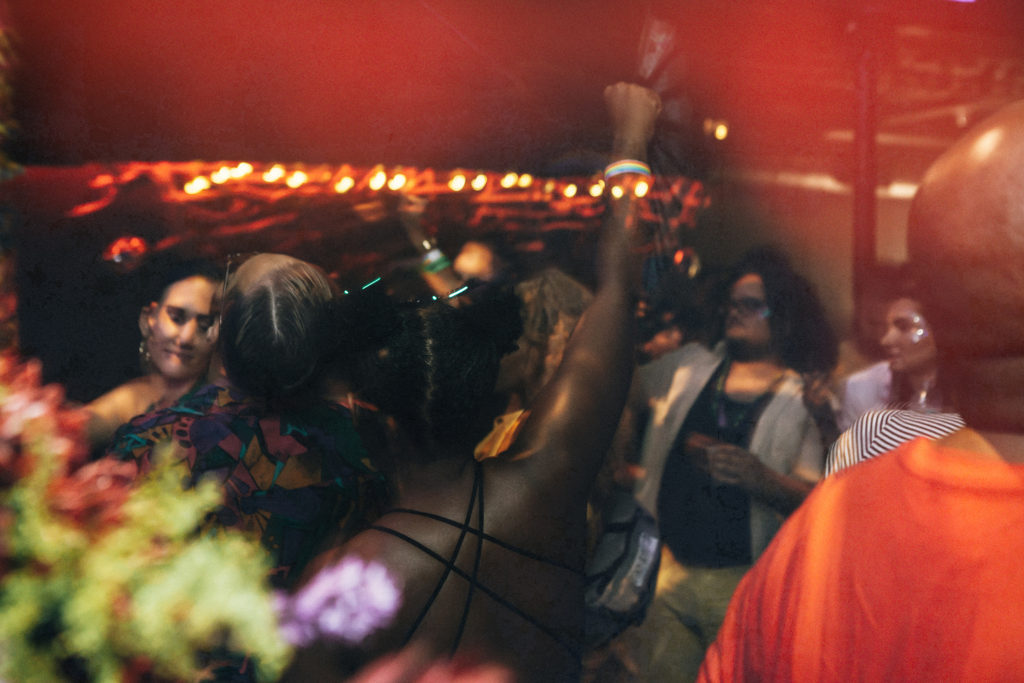
International Women’s Day Challenge
International Women’s Day is a good opportunity to take a moment and reflect on gender in dance music and this year’s global theme is “choose to challenge.” The existing disparities are glaringly obvious, even if just from a peripheral glance, but thanks to the work of groups like female:pressure and more women speaking out about their experiences in the industry, there is no doubt about the inequities facing women in dance music. Although women have always played various roles in our events, unfortunately, their representation behind the decks is an area where we must admit Open House Conspiracy comes up short as an organization. We are committed to changing this regardless of any reasons for it, but it is important to first try to understand it.
A good place to start is our bookings. To be clear, we do not book based on sex, age, race, nationality, sexual orientation, or any other factors like these and never have. This will not change. It is our opinion that trying to hit a quota would in turn become patronizing, for instance, but do not discourage anyone from doing what they feel it takes to reach more equitable outcomes. As a group that prioritizes music over all else, our programming standards have been strict. This means it’s hard to find DJs of any background that fit our music direction. When it comes to female representation on our lineups, we have certainly failed though.
On a local level, this is partly the result of a smaller pool of female DJs to even choose from. We are aware of one regional DJ that shares our interests and we have extended an open invite to play, but she is taking a break from DJing, so we’re limited to when she is ready again. There are others just starting out that are on our radar too. This lack of options does not make the transgression forgivable and we are by no means interested in using it to hang our hat on and give up. It has always been our ethos that if something doesn’t exist, we will create it. We have committed to annual DJ scholarships taught by our residents that focus on underrepresented and marginalized groups, prioritizing Black, female, LGBTQ, and low-income recipients. The selection for a female recipient has already been made thanks to the recommendation of one of our judging committee members, Christopher Scott Caldwell. She represents some of the intersectionality between these worlds, with a specific interest in ballroom culture, filling a void in DJs specialized for that community in Florida, and coming from Asian decent. We look forward to introducing her more officially in the future.
Of course, when it comes to touring talents, there is no justification for why representation has been lacking in our lineups, as there are plenty of women artists across the country and internationally to invite to play our party. We have been lucky to host the inspiring K-HAND, “the First Lady of Detroit techno” and a trailblazing artist who laid out a path for not just women but Detroit’s musical exports in general, regardless of gender, play for us. Also, we were thrilled to find out Jen Xerri, from DJ Minx‘s Women on Wax collective, regularly splits her time between Florida and Detroit and jumped on the opportunity to add her to our Jus-Ed day party last March, just before shutdown. There have surely been other women to play at our events, but when we are talking about merely a handful, we must do better and we are committed to challenging ourselves to do just that.

Why is dance music often notoriously absent of women? We’ve listened to many interviews and panels on the subject as we’ve come across them. Mixing the voices we’ve heard from with our own experiences, we believe it is a combination of lack of representation and a notoriously hostile environment. Sexism and misogynistic beliefs run rampant and are often left unchecked in this boys’ club of an industry, so women taking to the decks have to work twice as hard to be taken seriously and gain the same respect as their male counterparts. Besides, at the end of the day, technical skills can only get you so far, as nightclub DJing has devolved into something that is not exactly always a shining example of meritocracy. If a female DJ is technically as good as the next guy, what does it matter if they’re not “boys” with the booker or promoter? This uphill battle can help explain the conspicuous absence of women from the decks.
Some of you may have noticed this dynamic can spill out onto the dance floor as well. In a lot of instances, dance music crowds skew more heavily towards men. Once again, we must ask ourselves why? A message is already being sent by the lack of representation behind the decks that the club is not a place for women. Some of these men going out may aspire to be DJs and are there to seek inspiration or show a dedication to networking, often thinking, “I can be a DJ like him.” They can almost always see something of themselves in whoever is occupying the booth. There’s also the clubbing experience itself. Many women do not feel safe at nightclubs due to the predatory nature of pick up culture and those going out with that in mind. Instances of sexual harassment are more prevalent than anyone would like to admit and none of us are far removed from someone who has been victim to violent outcomes like rape or assault. These factors coupled with alcohol and drugs, can be a dangerous mixture.
This is why it is important to proactively and purposefully foster an environment often referred to as a “safe space,” where people feel welcome and the vulnerable are protected. There are many stories of victims not being heard or taken seriously. Thankfully, throughout our years of doing events we have been without serious incidence, as we’ve grown largely through word of mouth and organically. The bigger we got, the more of a concern maintaining this track record became. This is why Open House Conspiracy has a clearly laid out conduct policy page and places a link for attendees to check it out on our event listings. If this should detract would-be offenders who see it as “PC virtue signaling,” or whatever they want to label basic human decency these days, then so be it, we are better off without them. The other side is that those who have always wished for or seek such experiences feel seen and welcome by the intentions we’ve set out for participating in our events.
We will continue to choose to challenge the status quo, but make sure we are doing a better job when it comes to the disparity of women DJs in dance music through supporting with more representation in the lineups at our own events, offering learning opportunities for future female DJs, and extending our efforts to create an ever safer environment for all to enjoy.

